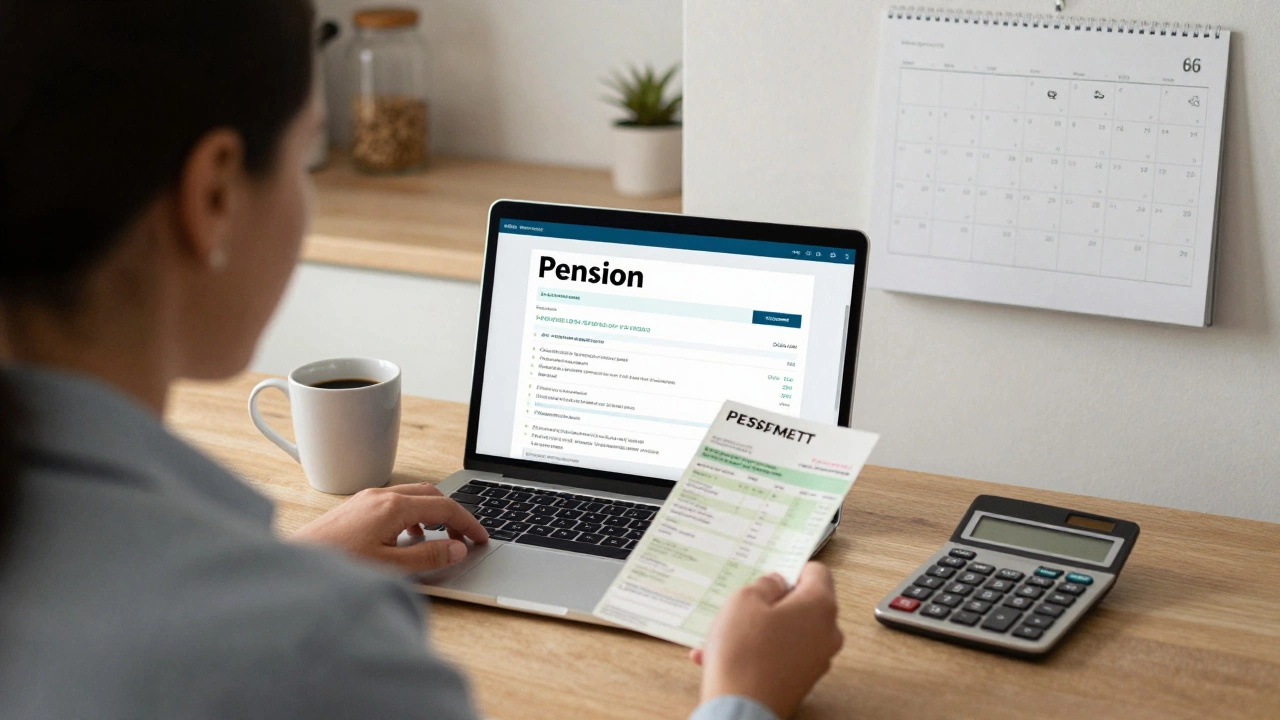Retirement Savings Made Simple: What You Need to Know Today
Saving for retirement can feel like a maze, but it doesn’t have to be. Whether you’re just starting a pension plan or looking at ways to stretch a nest egg, the right steps can give you confidence and peace of mind. Below, we break down the most useful ideas you can act on right now.
Start With a Clear Goal
First, pin down a realistic target. Ask yourself how much income you’ll need each month once you stop working. A common rule of thumb is to aim for 70‑80% of your pre‑retirement earnings, but your own lifestyle and health costs will adjust that number. Use an online calculator or a simple spreadsheet: plug in your current age, expected retirement age, and the amount you save each month. Seeing the numbers in front of you makes the goal feel reachable.
Once you have a target, match it to the type of pension you have. Defined benefit (DB) schemes promise a set payout, while defined contribution (DC) plans depend on market performance. Understanding the difference helps you decide how much extra you might need to save on the side.
Boost Your Pension and Fill the Gaps
Most UK employees benefit from automatic enrolment, but the default contribution rate is often low. If your employer matches contributions, increase your own percentage just enough to get the full match – it’s essentially free money. For self‑employed professionals, a personal pension or a stakeholder fund works the same way.
Beyond the workplace pension, consider a tax‑efficient savings vehicle like an ISA. The interest you earn isn’t taxed, and you can withdraw funds without penalties. Mixing a pension with an ISA gives you flexibility: the pension provides a steady stream, while the ISA covers unexpected expenses or early retirement plans.
Speaking of early retirement, many ask if $300k is enough to quit at 55. The answer hinges on your spending habits and the balance between your pension and other assets. If you can keep yearly withdrawals around 4% of your total savings, $300k could last 25 years. Add a part‑time job or freelance work, and the timeline stretches even further.
Don’t forget to review the risks in your pension. In 2025, pension security has improved, but factors like market volatility and scheme changes still matter. Keep an eye on fees, fund performance, and any announced reforms that could affect your benefits.
Finally, protect your savings with the right insurance. Homeowners insurance, for instance, shouldn’t leave out major risks like flood or earthquake. Gaps in coverage can drain your retirement funds faster than you expect.
To sum up, the secret to strong retirement savings is a mix of clear goals, maximizing employer contributions, using tax‑friendly accounts, and staying informed about pension risks. Start small, stay consistent, and review your plan at least once a year. Your future self will thank you.

A pension plan is your key to financial security in retirement. Learn how workplace, private, and State pensions work in Ireland, how much you need to save, and why starting now changes everything.
Read More
How long will $1 million last in retirement? In 2026, it depends on where you live, what you own, and how you spend. A realistic breakdown for retirees in Ireland shows that $1 million can last - but only with smart planning, downsizing, and using your State Pension.
Read More
With traditional pension plans fading, are they still relevant in 2025? Explore if pension plans are obsolete and what modern retirement planning looks like for families today.
Read More
Is $300,000 enough for retirement? Find out how long $300K could last, what truly drains your savings, and proven strategies to stretch every euro or dollar as far as possible.
Read More
Thinking about calling it quits at 62 with $400,000 in your 401k? This article breaks down what that number could actually mean for your future. Get the lowdown on smart withdrawal rates, tax traps, Social Security timing, and the real costs you’ll face. Plus, I’ll share what folks miss—and a few tricks for stretching your money further. You might be surprised what’s possible and where the hidden risks hide.
Read More
Ever wondered how common it is to hit that magic million-dollar mark in your retirement account? This article dives into real numbers, age group breakdowns, and what sets retirement millionaires apart. It takes a look at habits, mistakes, and tips that can steer anyone closer to millionaire status. Get clear, down-to-earth advice on how to grow your nest egg—no sugarcoating or complicated jargon. The goal: show just how reachable (or rare!) the $1 million milestone really is, and what you can do to increase your chances.
Read More
Confused about how pensions work? This article breaks pensions down into plain, simple language, explaining the basics without the jargon. Learn what a pension is, how you put money into one, how it grows over time, and what you should pay attention to if you want to retire comfortably. Get practical tips, facts, and relatable examples. Perfect for anyone who just wants the straight facts—no financial degree needed.
Read More
Running out of money during retirement is a common concern for many individuals relying on a pension. This article explores how careful planning, understanding your pension terms, and considering additional income avenues can help mitigate this risk. You’ll learn about common pitfalls, such as underestimating life expectancy and inflation, and practical strategies for maintaining financial security. Whether it's diversifying investments or considering annuities, discover ways to ensure your pension lasts throughout your retirement.
Read More